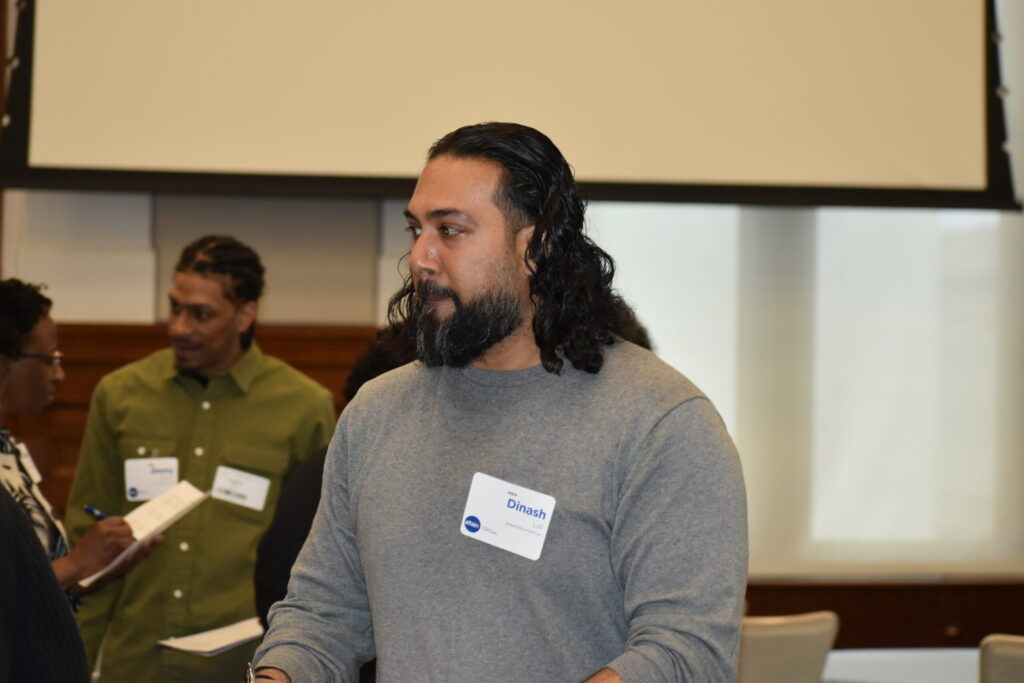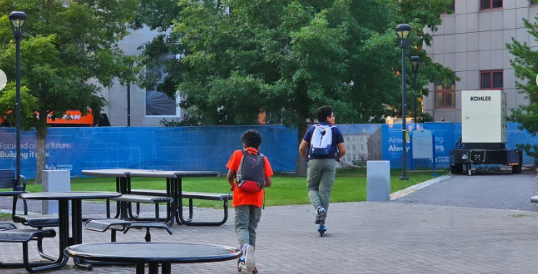Growing up in New York City, Dinash Lal has seen firsthand the effects on communities that aren’t provided with opportunities to improve. So when he thinks about the resources and services that he provides as the coordinator of a SUNY ATTAIN Lab in Niagara Falls, he does so critically with those people in mind.
“I don’t want to leave communities behind, especially certain populations that have been historically marginalized,” he says. “These can be vital. You don’t know how this could alter a life.”

Dinash brought 20 years of experience as a community worker – as well as his passion for creating impactful change – to his new position at the Niagara Falls Housing Authority ATTAIN Lab in April.
As one of more than 30 Advanced Technology Training and Information Networking Labs across the state, the community-based center offers free academic, occupational and employability courses that are geared toward introducing and supplementing students with educational and vocational skills.
This commitment to technology-driven education is one of the reasons Dinash has been nominated for the Innovative Educator Award at the 2024 BETAS. This award celebrates educators who inspire students through cutting-edge teaching methods in technology. Dinash’s work in creating an environment that fosters digital literacy, encourages creative tech use, and empowers students is shaping the future of tech education.
One of Dinash’s first orders of business was to understand how the ecosystem is working and operating – both by listening to those who already use the lab and by paying attention to those who aren’t. He has done so through digital surveys and by attending events, such as virtual career fairs, as well as TechBuffalo’s Community Conversations and Family Code Night with his sons.
One common need that has kept emerging is digital literacy improvement. ATTAIN Labs are designed to provide time and space for that type of skill development through advanced technology training for a high-demanding technological world.
“There’s a difference between consuming tech and creating tech,” Dinash says. “We want to give people an exposure to tech not just on the consumption side but on the creative side, encouraging people to use it in a productive way personally and professionally.”

From Ph. Ds and professors learning QuickBooks to others taking Microsoft Word, English or GED classes, a wide range of people walk through the lab’s doors or take advantage of its virtual programming.
“I’ve noticed across the board a level of anxiety and uncertainty with what’s coming with machine learning and AI,” he says. “That feeling permeates everyone. Technology gives people options to work toward improving themself.”
Dinash believes that everyone has a role in improving the community. And whatever that role is, participating proactively, collaborating intentionally and empowering people with the tools and skills to be prepared for what’s to come will benefit all.
“We may not be where we want to be, but we’re striving for greater prosperity,” he says. “I’m in favor of skill development that meets market demand and creating opportunities to elevate those locally through technology. It’s not necessarily bridging the gap, because it still exists, but I think what we offer is valuable to the community that we serve.”
Get the newsletter.
Tech news, training programs, job prospects, events, and more.

